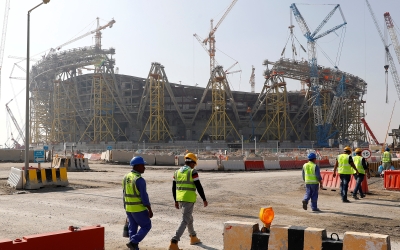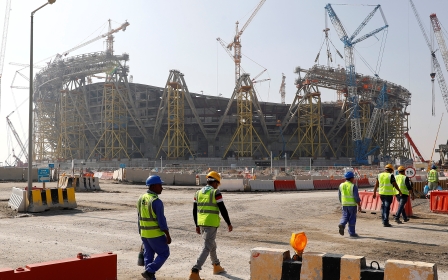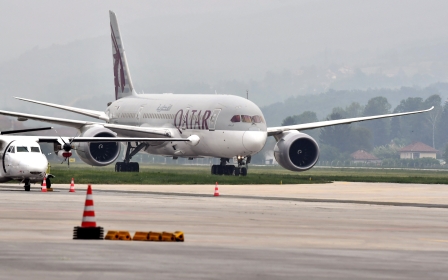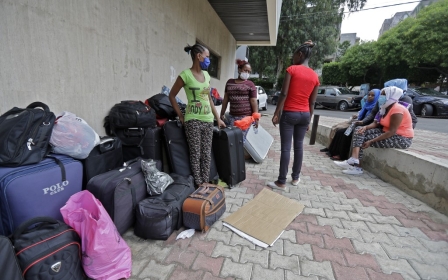Qatar introduces minimum wage and lifts restrictions on workers changing jobs
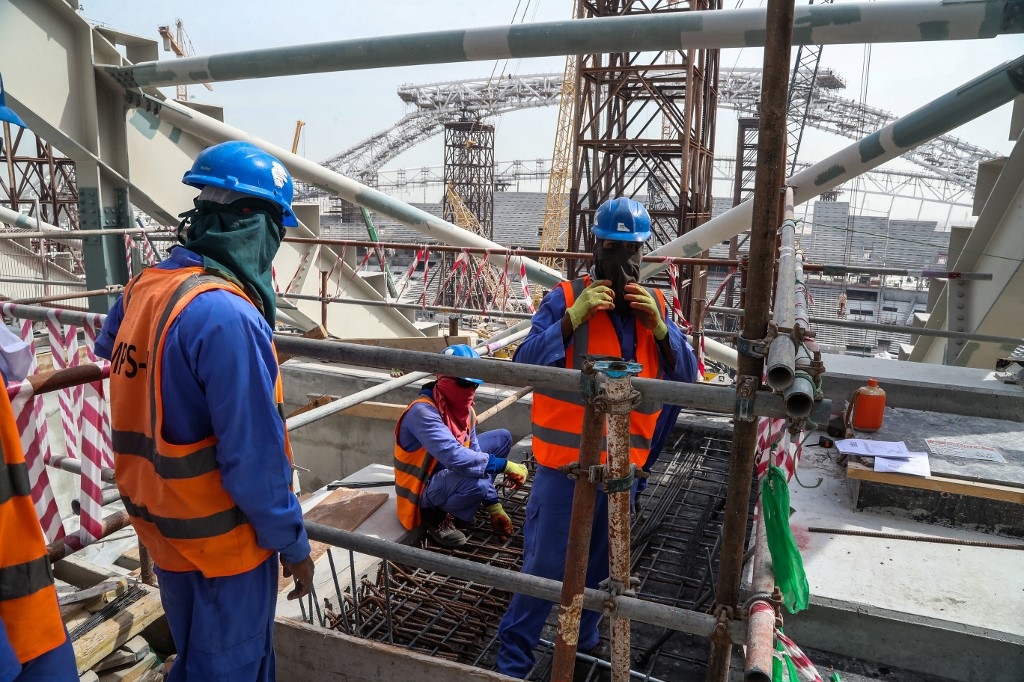
Qatar has announced plans to change its labour laws by introducing a minimum wage and scrapping a requirement for workers to get permission from their employers to change jobs.
The historic move comes amid continued and widespread criticism levied at the Gulf kingdom over its treatment of migrant workers as it prepares to host the Fifa 2022 World Cup.
The Ministry of Administrative Development, Labour and Social Affairs (MADLSA) said on Sunday the new minimum wage of 1,000 Qatari riyals ($274) will come into effect in six months' time.
In addition to the minimum wage, the ministry has also announced the provision of 500 riyals ($137) for accommodation and 300 riyals ($82) for food if those expenses are not provided as part of the contract.
Under Qatar's kafala (sponsorship) system, migrant workers needed to obtain their employer's permission - a no-objection certificate (NOC) - before changing jobs, a law that rights groups said tied their presence in the country to their employers and led to abuse and exploitation
The removal of the NOC will be implemented immediately.
'We call on Qatar to go further'
“This is a huge step towards our labour reforms," labour ministry assistant undersecretary Mohammed Hassan al-Obaidly told Reuters.
“These reforms are in the best interest of Qatar, its guest workers and employers."
The United Nations Labour Agency hailed the change and said it gave workers more freedom and protection, and employers more choice.
Qatar will be the first country in the Gulf to implement a non-discriminatory minimum wage and remove the no-objection certificate for employers.
Amnesty International praised the move but also called on the Qatari authorities to remove the laws which criminalise workers for absconding from their employers.
"We call on Qatar to go further with these reforms, including removing the charge of absconding, to make sure that the rights of all workers are fully protected," said Stephen Cockburn, Amnesty's head of economic and social justice.
Middle East Eye delivers independent and unrivalled coverage and analysis of the Middle East, North Africa and beyond. To learn more about republishing this content and the associated fees, please fill out this form. More about MEE can be found here.


